PERIODS COVERED: 2019 -2018, 2017 – 2016 , 2015 – 2014 , 2013 – 2012, 2011, (below)
TELLConsult attended SMART_VET project kick-off meeting
Submitted by tonk , on Wed, 12/21/2011 – 16:55
The EU project SMART_VET (2011-2013) had its kick-off meeting at the coordinator (FIT) ‘s premises in Dublin.
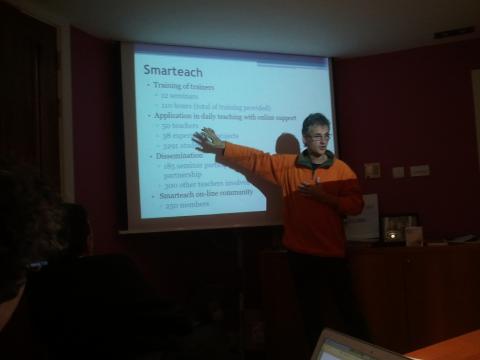
On behalf of TELLConsult, partner in this project on (interactive whiteboards) IWBs in Vocational Education, I attended and contributed an invited presentation on my experiences with IWBs in education. On the photo here, Gilberto Colinassi (ENAIP FVG), presenting the Italian SmarTeach project
Obviously I included the related EU project iTILT, presented an overvview and some of the interim products.
Being responsible for the design of the survey questionnaire to map teachers´ IWB training needs I was glad the team also focussed on issues related to the development of the project´s initial products.
As this was my first visit to Dublin and I only had one day to visit the city I decided to concentrate on 2 key aspects of Irish culture and therefore visited Christ Church Cathedral and the Guinness Store. (see the view from the Bar on top of the building on the left) 🙂
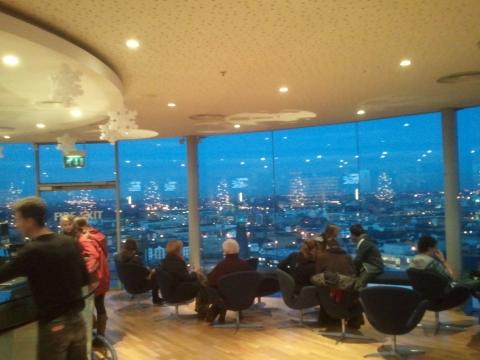
Fortunately the final meeting has also been planned here so we will have another opportunity to visit this impressive town.
TELLConsult invited by Utrecht University to develop summercourse on NIFLAR project results
Submitted by tonk , on Thu, 11/10/2011 – 18:33
Having been a partner in the EU project NIFLAR TELLConsult gladly accepted Utrecht University’s invitation to develop a summercourse to disseminate the results of its most successful EU project NIFLAR on video web communication and 3D virtual worlds in language education.
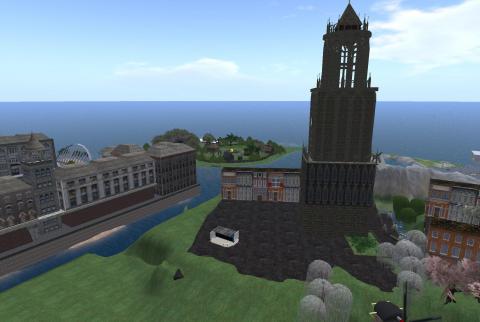
The initiative is a joint venture of The Department of Modern Languages and the Centre for Teaching and Learning of Utrecht University in collaboration with the Faculty of Education of Valencia University and the Utrecht Summerschool
As a first step we have defined the focus and title of the course: Methodologies & Technologies to promote oral communication in Language Education
Also the dates have been decided. Since we intend to also offer it as a Comenius course there will be two options in time and place to attend the course: in Utrecht the first week in July (week 27) and in Valencia, the second week in October (week 42).

In this way it is hoped that more language teachers can apply for an EU grant and are in a position to attend.
Meanwhile we are also getting the team together. NIFLAR coordinator Kristi Jauregi and language pedagogy researcher Rick de Graaff, both Utrecht University scholars, have reserved time to contribute.
3D developer, Nick Zwart, who manages several 3D educational locations including the Language Village 2.0 Chatterdale and NIFLAR 3 Sims will also be available to introduce participants into 3D worlds.
Valencia University will be respresented by Jenny García Devís.
I have also approached TELLConsult’s project partners and friends, Graham Stanley and Joe Dale, both widely recognised ICT and Modern languages specialists, to contribute as guest lecturers. They were both most pleased to block their agendas in advance while we are defining in more detail for which components of the course contents they could best provide input and guidance.
More information soon on the Utrecht SummerSchool site.
Having very dear memories of previous summercourses I organised, including the Comenius course ‘Designing activities for the 2.0 Language Classroom’ for Hogeschool Utrecht I am already looking forward to these exciting, face-to-face professional knowledge sharing events with practitioners from all over Europe and beyond.
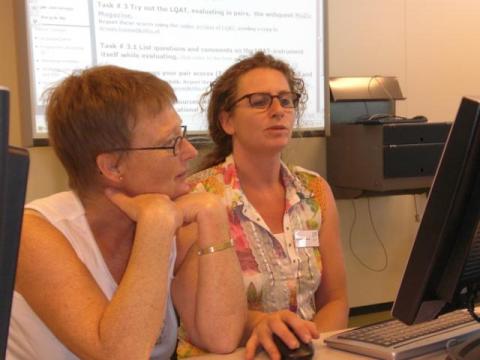
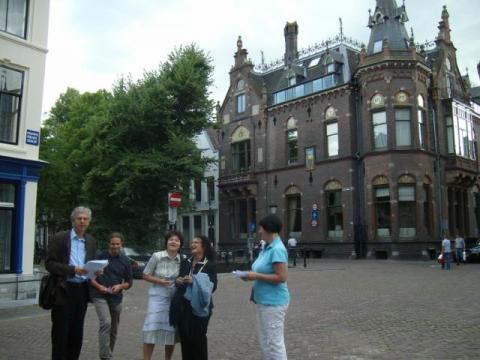

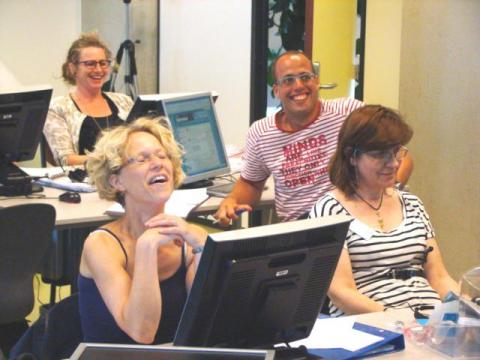

TELLConsult contributed plenary presentation to EU project ETALAGE conference
Submitted by tonk , on Tue, 11/01/2011 – 20:56
On behalf of TELLConsult I contributed a presentation, entitled ‘Task-supported language teaching and technology-enhanced learning’ to the final meeting of the EU project ETALAGE in Budapest.
(more on this below) 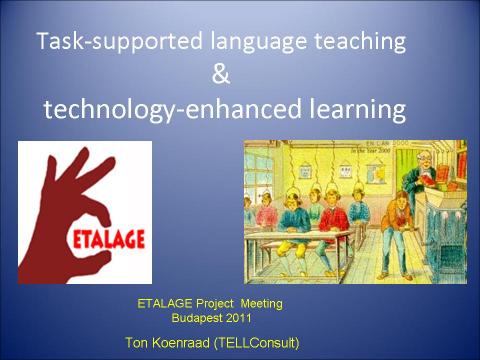
The fourth and final meeting / Conference of the Etalage project took place in Budapest from Sunday the 9th of October until Thursday the 13th of October 2011. Eötvös Lorand University and Madách Imre Gimnázium, Budapest, hosted the event for colleagues and their guests from 9 European countries.
In his presentation ‘Pedagogical changes brought about by ICT integration’ at the EUROCALL 2011 Conference , Ton Koet, the project coordinator, explained the project’s mission as follows:
[…]The acronym ETALAGE stands for European Task-based Activities for Language Learning; a good practice exchange. As is clear from the acronym, the project is firmly founded in the tradition of Task Based Language Teaching (TBLT; see Ellis, 2003) and it is European in the sense that it is based on the Common European Framework (CEFR; see Council of Europe, 2001); what is not clear from the title is that the project hopes to use ICT to further the implementation of both TBLT and the CEFR.
He then elaborated on the pedagogical changes the project aims to support: a) a move away from a traditional language instruction approach (grammar and vocabulary teaching) to a task-based approach; b) the implementation of the CEFR and c) a third change, particularly urgent in the Netherlands, more frequent use of the target language. It was hoped that the use of ICT would encourage teachers to abstain from using the native language.
Among the other plenary speakers were Ágnes Enyedi, faculty member of the DELP, who presented “Who is teaching and who is learning in our classrooms?” arguing the relevance of socio-constructivistic pedagogical approaches and Tibor Prievara, expert teacher trainer and editor-in-chief of “Tanárblog”, a leading ICT site in Hungary (www.tanbarblog.hu), who provided the participants with ample examples of how ICT is used at the school and in his class in particular (e.g. interactive whiteboard exercises, use of Nicenet, mindblogs, facebook, Quizlet.Com (test generator), google streetview, Classtools, NGAkids interactive Dutch dollhouse, microblogs in Grammar, ITL 21st century skills, Twitter).
See his blog for the full presentation.
Tibor, a certified SMARTboard trainer and active user of the interactive whiteboard for his EFL lessons, was very much in support of my proposal to offer an iTILT dissemination partnership to his school, the Madách Gimnázium.

Having been involved with the project as external evaluator I started my own presentation by presenting a set of criteria developed by Westhoff (2006) that could help in evaluating the learning potential of MFL tasks.
On the one hand to be transparent as to my approach in the evaluation of a number of the tasks developed by the Etalalge project but also because these guidelines, with the acronym FLIRT, have proven to be an efficient tool in the related Council of Europe Project: LanguagQuest (2004-2007)
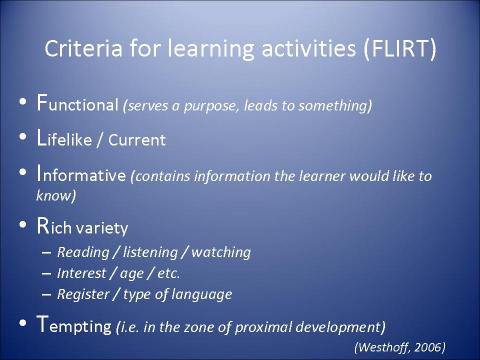
Activities should be:
1. Functional (serve a purpose), lead to something
2. Lifelike /current
3. Informative (the learner finds out new things about life)
4. Providing rich input (address all sorts of skills / register should vary)
5. Tempting (doable – in zone of proximal development)
I then presented an overview of how the ICT-element in the project tasks, one of the ETALAGE design criteria, could be enhanced.
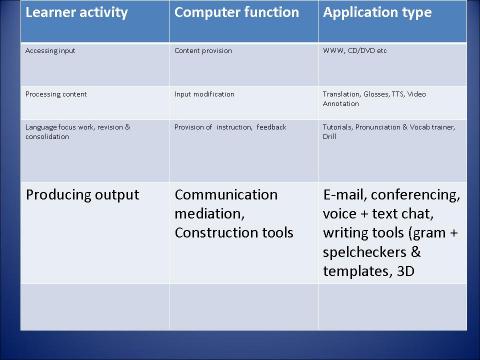
To this end I made an inventory of what applications had been included in the available ETALAGE tasks and made suggestions for other ICT tools and applications that could provide added value to or facilitate specific task phases.
The international audience at the conference also provided an excellent opportunity to disseminate progress and results of other projects and initiatives TELLConsult is involved in. So in addition to personal communication I could inform colleagues about NIFLAR & EUROversity (3D in (MFL) Education), EUROCALL and the ITILT project (IWB in MFL Education) in my presentation and by distributing flyers and DvDs.
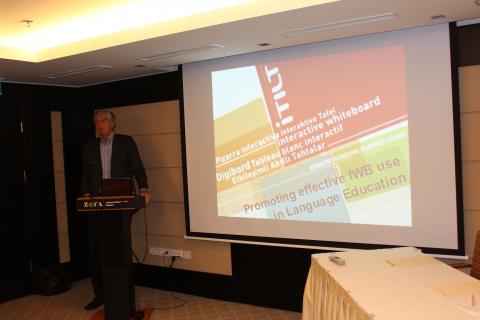
The PDF version of the presentation is available at Slideshare
I was impressed with a number of aspects of the project and the conference: a) the organisation b) the team spirit that could be felt among the attendants c) the subtle balance between theory and grass-roots practice and d) the professional level of the work done and presented in the various poster sessions and workshops.
TELLConsult contributed to review of SURF ACADEMY Summer School ‘ Video in Education’
Submitted by tonk, on Sat, 10/15/2011 – 17:55
SURF is the collaborative organisation for higher education institutions and research institutes aimed at breakthrough innovations in ICT. SURF provides the foundation for the excellence of higher education and research in the Netherlands. More info here.
Kirsten Veelo, one of its community managers, invited me to contribute to an interview about the SURF ACADEMY Summer School ‘ Video in Education’.
View the recording here
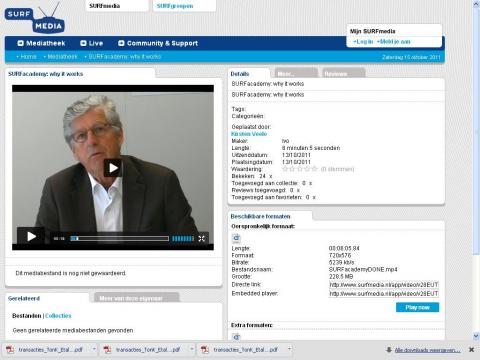
Sequences of the results will be used for her presentation about SURF services at the EDUCAUSE 2011conference.
For a more elaborate report on this course see my review on SURFspace (in Dutch!).
TELLConsult contributed keynote to the 2011 English for Kids conference
Submitted by tonk , on Sat, 09/24/2011 – 22:50
On the occasion of the European Day of Languages 2011 EFKF, the English for Kids Foundation, organized 2 days of English in Action.

Friday 23 September was reserved for the EFKF Kids World Games, Saturday 24 September for the International Support & Teach Conference.
Both events took place on University College Utrecht Campus and were financially supported by the European Platform. Various volunteers presented information on the EFKF projects in India, South Africa and Ukraine they were or had been involved in.
As Head of EFKF Research & Development I was invited to provide some input and food for thought on the use of information technology for the foundation’s development and for educational purposes in its international projects.
I based my presentation ´New developments in computer assisted language learning´ largely on content and main findings of two recent events I attended: the EUROCALL 2011 conference and the centennial of the Dutch association of language teachers, Levende Talen.
And more in particular the Symposium that day on the future of language education and the related views on this issue as discussed in interviews I had with the MFL/CALL experts Colpaert, Guichon, Müller-Hartmann, Davies & Lund.
The live NL discussion and the summaries of interviews are to be published on DVD later this year.
The PPT of this presentation is available for download at Slideshare.
TELLConsult at EUROCALL 2011
Submitted by tonk, on Wed, 08/31/2011 – 13:25
Facilitated by the iTILT project I will represent TELLConsult at EUROCALL 2011 Conference for the poster presentation of the iTILT project on the use of Interactive Whiteboards in Language Education. Nottingham University hosts the conference on its Jubilee Campus.

Having registered and explored the facilities I am excited about sharing the next few days with some 250 colleagues, especially since the conference programme book promises lots of interesting content.
A quick scan – with my current and two upcoming EU project commitments (SMART_VET and EUROversity) in mind – shows that the top 3 of hot topics are: 1) Computer Mediated Communication in general and using 3D platforms and mobile devices in particular 2) Moodle for language learning and teaching 3) Task-based language learning.
Apparently it is still early days for reports on research and practice related to IWB use as only one paper on this topic will be presented (which, BTW, also underlines iTILT’s project rationale!). If present at the conference check out the poster materials.

For a brief report on the session see this blogpost at the iTILT project site
If interested in this topic, check out my iTILT blogpost for more info on my previous IWB-related contributions to the EUROCALL conferences.
Linguist list review of Digital Genres, New Literacies and Autonomy in Language Learning (Luzon et al., 2010)
Submitted by tonk , on Tue, 07/19/2011 – 12:14
The June 2011 edition of the LINGUIST List features Daria Dayter’s review of the book ‘Digital Genres, New Literacies and Autonomy in Language Learning’, edited by María José Luzón, María Noelia Ruiz-Madrid and María Luisa Villanueva (2010).

A number of contributions to the book, published in the Cambridge Scholars Publishers series, was first presented at the Seminario Internacional CIBERTAAAL, a conference organised in 2008 by Grupo de Investigación GIAPEL (University Jaume I) Género y TIC. Nuevas Competencias y Aplicaciones al Aprendizaje Autónomo de Lenguas
The summary at Amazon introduces the book as follows:
The exponential growth in the amount and complexity of information transmitted and shared on the Internet and the capabilities afforded by new information technologies result in the continuous emergence of new genres and new literacy practices that call for new models of genre analysis and new approaches to teaching literacy and language, where language learning autonomy has to take centre stage. Any pedagogical approach which seeks to develop autonomy in online language learning should also be concerned with the development of new literacies, with raising an awareness of digital texts and with the cognitive processes learners engage in when constructing meaning in hypertext. […]
The chapters in this volume, written by researchers from different academic traditions, report research concerning digital genres, new literacy skills and the design of webtasks for effective language learning. These chapters will be useful resources for researchers and doctoral students interested in the development of autonomous language learning in digital environments.
Last week I received a complimentory copy of the book to which I contributed the chapter ”Tools and Strategies to Support the Implementation of Web-Based and Task-Based Approaches in Modern Language Education” (pp. 129-151).
The contacts with the research group Giapel also led the invitation to be guest editor of the 2009 issue of the e-zine: ‘Computer Resources for Language Learning’ (CORELL) on WebQuests in Language Education. To this I contributed an introductory article describing the results of the NL project ‘LanguageQuest’ that were also disseminated through the international workshop ‘LQuest’ (2004-2007), organised by the European Centre for Modern Languages (ECML) .
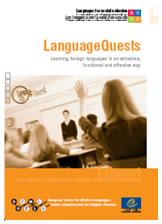
TELLConsult attended iTILT project meeting
Submitted by tonk ,on Wed, 07/06/2011 – 23:09
On behalf of TELLConsult I attended the project meeting hosted by iTILT partner IUWIC . For a brief impression see my post on the project’s website.
The Cardiff venue for this meeting provided a unique opportunity for me personally to meet up again with John Parnell, former Cardiff University partner in the PRONETT project. This EU project (2001-2004) can (retrospectively) be characterized as an avant-la-lettre project on innovating the teacher education curriculum with regards to the use of Web 2.0 applications for learning processes. For more info see Koenraad (2005a) and Koenraad & Parnell (2005). And BTW, to John I also issued the first copy of my share of iTILT flyers which were distributed at the Cardiff project meeting.
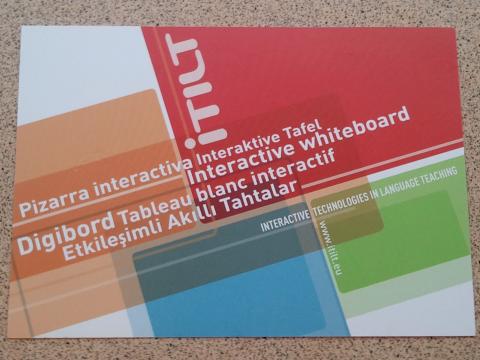
The occasion also presented a chance to realise a long standing wish to see a bit of Wales and visit Devon and Cornwall. So we extended our visit a little to enjoy the beauties of this part of the UK.

On our way south we first visited Exmoor Park from Minehead and did some brisk walking 🙂 on the Coastal path with its stunning views!
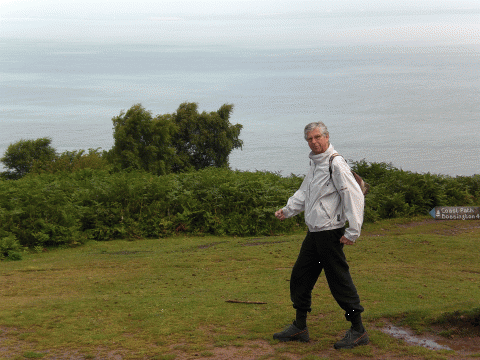
TELLConsult co-presented iTILT at REAL-TICE conference
Submitted by tonk ,on Fri, 06/24/2011 – 23:46
Together with British Council partner Graham Stanley we did a workshop on IWBs in Language Education at the REAL-TICE conference on June 22-25 in Madrid.
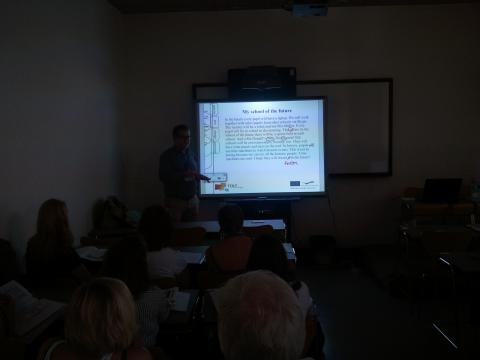
The event was organised by the European Network of Language Teacher Associations (REAL) in collaboration with several Language Teacher Associations, including TESOL-SPAIN. Fore more information, programme and presentations consult the Seminar website
Main goals of the seminar were to enable participants to:
- share their concerns, ideas and experiences about the world of teaching and learning languages;
- find out about new solutions on how to bring technology into their teaching practices;
- learn how to develop their students’ digital competences;
More than 100 people attended the conference. And with 20 people present at our iTILT project workshop we could have a truly interactive session, brainstorming on realising added value of IWBs in Language Education and discussing related teacher competences and quality criteria for materials
For me personally the networking aspect remains undeniably a powerful aspect of events like these. I met several nice and interesting people, an important first step towards knowledge sharing. Some of them also showed an interest in becoming iTILT associate partner.
I also used the opportunity to get to know Madrid. I enjoyed visiting the city centre and its fabulous museums enormously.
It also gave me chance to pay tribute to my great inspirator and his loyal assistant 🙂

For more information on the contents & process of the workshop and a summary of the results of the intake questionnaire check our report on the iTILT blog.
TELLConsult accepted invitation to lead EFKF’s R & D team
Submitted by tonk , on Tue, 06/14/2011 – 23:56
As we reported in TELLConsult’s mission statement we also make time available for not-for-profit intitiatives, such as the English for Kids Foundation (EFKF), for which, we think, TELLConsult’s expertise could contribute to realising the ambitions. We have gladly accepted the invitation to lead EFKF’s R & D team.

This is how this news was reported in EFKF’s Newsletter #16:
Research & Development Team now led by Ton Koenraad
More than 3 years ago University Teacher Ton Koenraad showed an interest in EFKF. He promised us he would contact us after his retirement. In Febuary 2011 he retired, in June he accepted his new volunteer job as Head of EFKF Research & Development Team. His first task will be to set up a research project to establish which materials and structures are presently used in EFKF Projects. This research is scheduled to start in September and will be carried by Amsterdam University College students . We will keep you posted.
Sankore’s open-source authoring software presented at Salon Solutions Linux Open Source 2011
Submitted by tonk , on Sun, 06/12/2011 – 00:01
For more information about this initiative in French click here for its webportal and/or view this YouTube interview
Thanks to another relevant Twitter follower I found out about The Sankoré program. It is a French initiative to share the revolution of digital education with Africa. The activities, started in January 2009 in Bamako, are supported through the Groupement d’Intérêt Public pour l’Education Numérique en Afrique (GIPENA) and the Délégation Interministérielle à l’Education Numérique en Afrique (DIENA).
Sankoré is:
- a program to equip African schools with digital classrooms
- an ecosystem for creating and sharing open digital education resources
- a force to create new schools and train new teachers using digital education to reach the Millennium Goals for education on the African continent.
The fundamental goal is that the resources are available freely but that they can also freely be modified by anyone that wants to improve or adapt them from their original. Therefore a creative commons licence is used so that free educational content to teachers all around the world can be offered. For more details on current activities also see this tweet by PREMITA LEELACHAND
One of its deliverables is an open-source software suite which enables teacher to create open resources. The creators like to call it “the Firefox of educational software”.
The software suite comprises three tools:
- a universal Interactive Whiteboard application;
- a lesson and course designer with a tutorial and all the tool needed to build a teaching scenario;
- an editor for creating and publishing a sequence or course with interactive teaching animations.
As the project and
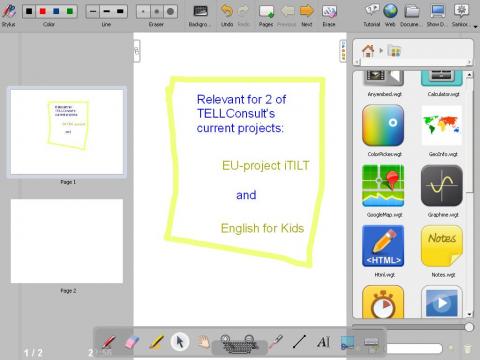
its tools match well with my involvement on behalf of TELLConsult with promoting language learning with digital, interactive (classroom) technologies in developing countries (EFKF) and the use of Interactive Whiteboards (EU project iTILT) I played around briefly with the Sankoré software, version 3.1.
First impression: highly intuitive, so without any documentation I could create the start of an IWB page in one minute.
Long tail also in Education
Submitted by tonk , on Sun, 06/05/2011 – 21:41
As George Tsioumani recently started to follow me on Twitter, I found out about his Blog ‘ICT in ELT’ and his interest in the WebQuest concept: […] I regret so much that I didn’t have discovered Webquest.org earlier.’ The comment option allowed me to share an overview of the latest developments on WebQuests in Language Education (LanguageQuests) as published in Issue 3 of CORELL, a peer-reviewed electronic journal on computer resources in foreign language.

This event and the recent invitation to TELLConsult to join an EU Transfer of Innovation project to help customise the results realised in the NL TALENQUEST project (2000-2004) for different cultural and educational contexts brought up the idea that the Long Tail concept might also be applicable in Education.
Furthermore one of George’s recent tweets also showed another area of shared interest: Interactive Whiteboards (IWBs) in language teaching.

Although only recently started, the iTILT project (2011-2013) may well serve his and other language (student) teachers’ needs by supporting the development of research and practice-based criteria for IWB-use in language education and the provision of MFL-specific research and materials resources.
WebSwami & MFL oral skills training
Submitted by tonk, on Wed, 05/25/2011 – 21:42
As advisor of Anglia Network Europe TELLConsult is involved in researching technologies and coaching experiments to facilitate training and assessment of EFL oral skills. In this context a first pilot using mobile phones was carried out using (a pilot version of) Learnosity, the results of which were also presented at the 2010 GLOCALL conference in Kota Kinabulu, Malaysia.

The recent WebSwami update and its adoption of LTI, through which WebSwami will automatically integrate with the large majority of the leading LMS including Blackboard, Sakai and – Moodle of course – was reason for us to recommend researching the WebSwami functionalities for Anglia’s ambitions to making its speaking practice materials available to a larger audience and to facilitate a more flexible delivery of fully certified assessments.
It is expected that these and future project results will also contribute to the knowledge base for the technology-supported oral skills curriculum. This will be most welcome as previous local research (Corda, Koenraad & Visser, 2009) has shown that ICT-tools to support oral proficiency development are underused.
Interactive Whiteboards and EFL in Brazilian Schools
Submitted by tonk, on Thu, 05/19/2011 – 22:33
I followed up this recent tweet from the EU project iTILT’s twitterfountain that referred to: ‘a very interesting paper on IWBs and mentoring with EFL Teachers in new British Council publication’
This led to Marcus Ferreira da Silva’s chapter: Interactive Whiteboards and EFL in Brazilian Schools.
In his contribution (2009) he addresses the question: Do Interactive Whiteboards (IWBs) have the potential to enhance students’ interaction in the foreign language class?
From the reference on the Macmillan page I selected this concluding paragraph:
[…] The literature seems to be extremely positive towards the use of IWBs but it is necessary to reflect about their real effect on my teaching context. Throughout this paper I analysed whether IWBs enhance learners’ interaction in the foreign language classroom. My conclusion is ‘yes’ they raise the level of interaction for the motivation and interest they create on students. Teachers’ feedback about the effects this technology has in their classes proves that IWBs are very effective tools in promoting interaction (Levy, In: Smith et al 2005). These teachers argue that as soon as they began using IWBs in their classes learners’ levels of motivation have increased significantly. These teachers explained that through PowerPoint presentations and interactive games students feel integrated in the learning process and as a consequence interact much more actively. Thomas, in (Smith et al, 2005) adds that through the use of CD-ROMs, websites, PowerPoint slides it is possible to facilitate the learning process as it becomes possible to associate sounds and images.
As at ITILT we will also make us of video recording of classroom activities I was pleased to read in the original publication that video records as a research method were well appreciated.
[..] Also, in order to help me to reflect and assess my teaching performance, I asked a colleague to film my lesson. This was a rewarding experience as I could integrate a new tool into my lesson plan and classroom practice. According to Jupp (2006), those who support the auto-ethnographic approach argue that: reflexivity about oneself and about the research situation, that is, being aware of one’s position in the context of research rather than denying it, is vital to a full understanding and is not completely at odds with forms of ‘truth’ or validity.(2006:16) As my own lesson was filmed, I could reflect on my performance while teaching with the IWB. I could analyse how I managed to integrate the IWB activities with other activities in the lesson. I could also understand that the IWB training I had received was essential for its positive flow.
On the other hand, frankly, I was a bit disappointed about the coverage of the available literature, but then one always hopes to find more references specifically to MFL-related research. But more importantly I thought the references were relatively dated.
And then there was also this: I found this reference to Cutrim’s work rather embarrassing:
[..] In addition to the advantages mentioned above, according to Cutrim (2006) Promethean Tm system has developed the use of IWBs by introducing new equipments and software such as ‘Activstudio’, ‘Activslate’ and ‘Activote’. Cutrim states that this voting system is able to raise the level of interactivity in the classroom and allows teachers to monitor learners progress either in an individually or whole-class bases. HE indicates that this device changes the pace of the class and enables teachers to identify which areas in their teaching need reinforcement.
After all I have enjoyed working with her at the Utrecht SummerSchool, and again now in the iTILT project . I will check with her whether her website was up at the time this paper was published 🙂
Research TELLConsult contributed to presented at EUROCALL SIG meeting
Submitted by tonk , on Thu, 04/28/2011 – 22:24
The results of research on modern language teacher competences were presented at the EUROCALL CMC & Teacher Education SIG 2011meeting. Dr. Robert O’Dowd, one of the keynote speakers at the Workshop ‘Getting the Bigger Picture: Language Teacher Competences in CMC Settings’ presented the outcomes of a study we were invited to contribute to.
Questions addressed were: What are the skills, attitudes and knowledge which a teacher needs in order to establish and carry out successfully an online intercultural exchange with their learners? Secondly, what does the research on second language teacher education tell us about how this competence can best be developed in teacher training courses?
On the basis of previous and his own, Delphi procedure-based research Robert presented a working model of telecollaborative
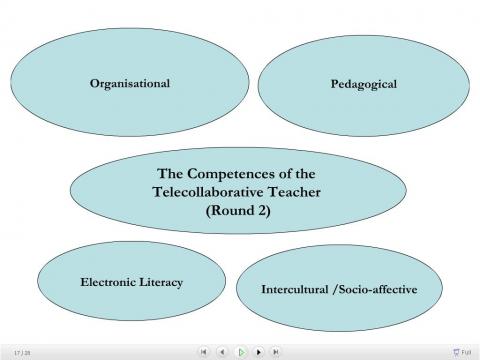
competence for teachers as a basis for discussion and debate.
His PPT can be consulted here:
CMC Teacher Education SIG Presentation; O’Dowd
View more presentations from CmcTchrEdSIG
Tags:
TELLConsult partner in EU Transfer of Innovation Project
Submitted by tonk, on Tue, 04/19/2011 – 23:21
As representative of the Dutch TalenQuest project TELLConsult’s owner Ton Koenraad was invited to join an international partnership applying for an EU grant to support the transfer of results and experiences obtained in the LanguageQUEST project (improved task design and methodology for realistic, content oriented, task based foreign language learning).  The Aims and objectives of WQuest project are:
The Aims and objectives of WQuest project are:
- To transfer results and experiences obtained in TALENQUEST project (improved task design and methodology for realistic, content oriented, task based foreign language learning) and to incorporate that methodology to Turkey, Spain, Greece and Sweeden school teachers.
- To interchange experiences among partners to propose an improved methodology of implementation of WQUEST tool and to transfer the results of WQuest-INSET roject to real-life environment (to school teachers).
- To upgrade existing TALENQUEST web application.
- To produce Recommendation for implementation of WEBQUEST manual.
- To create an e-learning web portal to train teachers about WEBQUEST via e-learning.
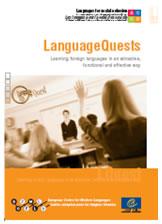
Selected by the Council of Europe the project’s results and its WebQuest Quality Assessment Tool in particular were disseminated before in the LQuest Project (2004-2007) supported by the European Centre for Modern Languages
For an overview of recent developments re WebQuests in Language Education consult the third issue of the Computer Resources for Language Learning Journal (CORELL) with a collection of selected papers on the subject.
TELLConsult joined EU CALL project application
Submitted by tonk , on Sun, 04/17/2011 – 23:25
Utrecht University invited TELLConsult to join its new initiative to scale up facilities and know-how developed in the NIFLAR project.
The project aims to contribute to the challenges of the Lisbon main strategy (2000) by further improving telecollaboration among peers at secondary educational level and the innovation of teacher training programmes.
Its experiences with telecollaboration in the NIFLAR and the MiCALL project will allow TELLConsult to make a relevant contribution.

This new project seeks to:
- innovate, enrich and make more attractive and effective foreign language teaching programs at secondary schools by stimulating telecollaboration for intercultural awareness with peers of other cultures.
- empower teacher training programmes for developing ICT literacy skills and organizational, pedagogical and intercultural competences of (student) teachers for telecollaboration, by promoting experiential learning.
- study the possible added value telecollaboration might have in language learning for intercultural understanding of younger learners.
Project partners will experiment with different but complementary telecollaboration tools that allow both asynchronous (social media, such as Facebok or Ning, Youtube) and synchronous (videowebcommunication or virtual worlds) communication, taking advantage of the specific affordances they offer. Flexibility and openness will be a target to be respected during project processes, as schools will experiment with the different tools but will have the freedom to choose for integration in the foreign language programmes those tools that best fit in their educational system and best respond to their learners’ specific needs and learning styles.
The project focuses on two target groups: young foreign language learners at secondary schools and pre- and in-service teachers. The project tries to take full advantage of younger age learners for stimulating fluency practices for meaningful language use and intercultural dialogue with peers through telecollaboration.
TELLConsult supports EU project bid on 3D learning
Submitted by tonk, on Mon, 04/04/2011 – 22:48
TELLConsult joined a partnership of eighteen European partners in applying for an EU network grant in the LifeLong Learning Programme.
The network is made up of a variety of organisations (such as the Universities of Utrecht and Manchester, Talkademy, Umeå University, and FOR.COM and many more) that have had significant experience of the use of 2D/3D virtual worlds in learning and teaching contexts (among others in European projects such as AVALON, AVATAR, START, LANCELOT and NIFLAR).
The aim of this project is to establish a network designed to collaboratively share good practice in virtual worlds, with the wider community of interested organisations/individuals across disciplinary boundaries, and at different levels of education. The partner experiences will be shared in the creation of a good practice framework. This will help to guide those new to virtual worlds in understanding how to make best use of virtual spaces in learning and teaching.and then to evaluate this guidance with some of the partners who have more limited experience of teaching in these virtual environments.
TELLConsult is committed to contribute to:
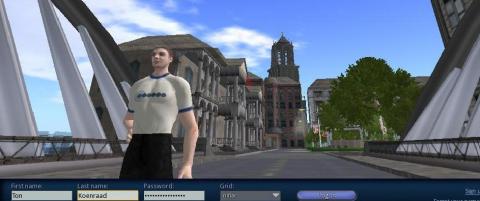
- the further exploration of the Open Sim platform and Grid affordances for language learning
- the scaling up of EduSim-NL, the national community of HE practitioners of 3D supported education.
- sharing of expertise in 3D communicative games design with and further development of related local CoPs and SIGs such as the Virtuality SIG
- the dissemination and implementation of VLang insights, materials and facilities in Dutch secondary education by closely collaborating with parties with similar missions such as digischool 3D
EU project proposal for CMaps & IWBs submitted
Submitted by tonk , on Wed, 03/30/2011 – 17:09
TELLConsult was invited by EnAIP FVG, Ente ACLI Istruzione Formazione Professionale Friuli Venezia Giulia, to join an initiative  to apply for an EU Leonardo, Transfer of Innovation Grant. The project’s aim is to meet the need of schools and VET institutions providing teachers/trainers with innovative didactic methodologies like concept and mind mapping combined with a full exploitation of IWB applications. TELLConsult is to contribute expertise on IWBs in education (Koenraad, 2008). The project’s specific objectives are:
to apply for an EU Leonardo, Transfer of Innovation Grant. The project’s aim is to meet the need of schools and VET institutions providing teachers/trainers with innovative didactic methodologies like concept and mind mapping combined with a full exploitation of IWB applications. TELLConsult is to contribute expertise on IWBs in education (Koenraad, 2008). The project’s specific objectives are:
- to use concept maps as a tool to improve evaluation of learning process outcomes
- to use mind maps as an aid to teach students how to collect, synthesize and reformulate information and knowledge
- to use the interactive whiteboard as an integration tool which enhance the power of all the data-mapping tools for educational purposes, linking them to other pedagogical resources available in the classroom, like the internet, local resources, cooperative learning tools.
The application was successfully submitted and the hopes are high for a positive result to be published in the second half of the year.  Participation also means another opportunity for TELLConsult to be a linking pin between this and the iTILT project, contributing by cross-fertilisation and dissemination of results.
Participation also means another opportunity for TELLConsult to be a linking pin between this and the iTILT project, contributing by cross-fertilisation and dissemination of results.